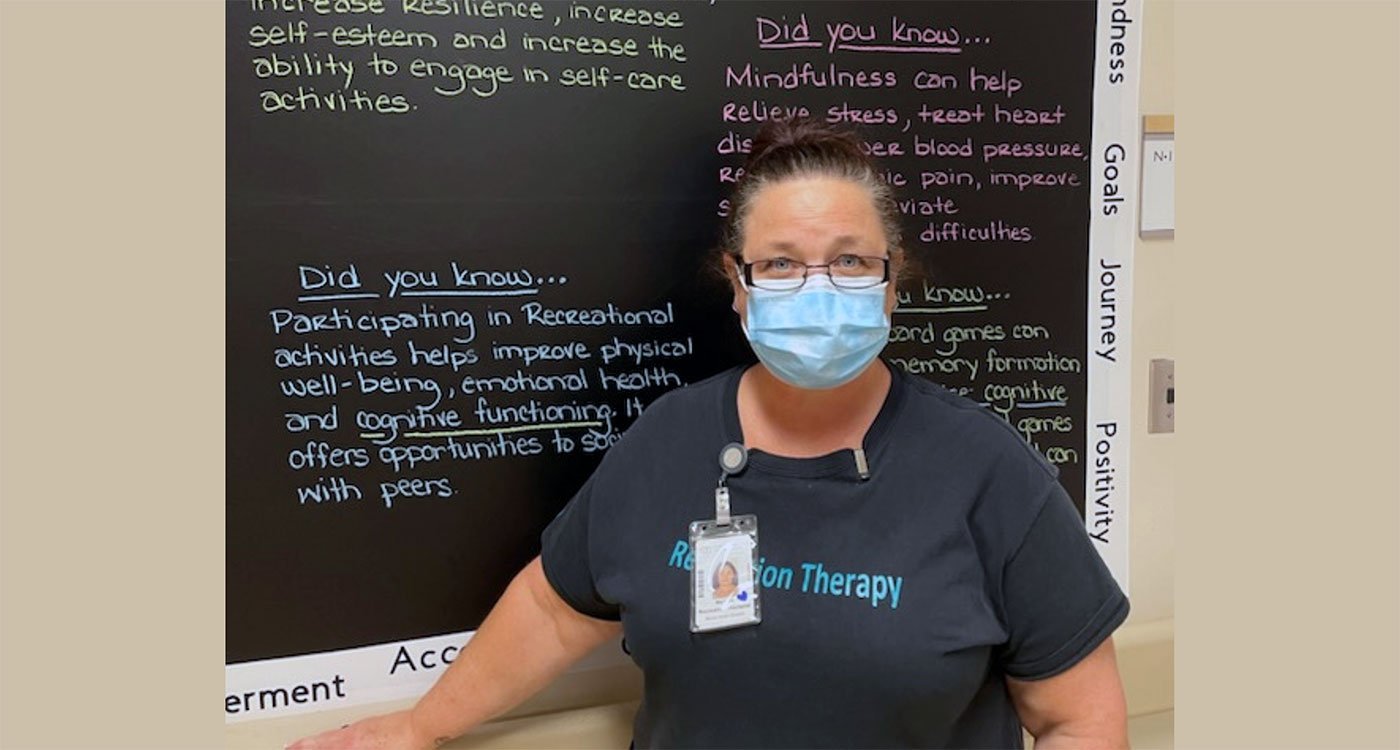
The first step to dismantling stigma around mental illness is understanding where it comes from and how it impacts people, according to Marlene, Recreation Therapist, Mental Health and Addictions.
Marlene runs an anti-stigma group in Brampton Civic Hospital’s inpatient mental health program. With the support of the group, patients focus on their strengths, turning them into superpowers. Marlene gives us the 101 on the group and shares some tips for breaking down the stigma around mental illness in our own lives and relationships.
Tell us about the anti-stigma group.
The purpose of the group is to define stigma and discuss how it can affect individuals, including barriers to treatment, jobs, health care and friends. We also address how there can be multiple layers to the stigma experienced; this conversation is not solely limited to mental illnesses.
How does stigma develop?
Many people are unaware of their own roles in perpetuating stigma. Language and actions perpetuate stigma from both a patient and public perspective. A common example is when people use mental health disorders to negatively describe a person or thing, diminishing the seriousness of mental illnesses.
Asking someone with a mental illness to just “stop” or “snap out of it” is like asking someone with a broken leg to “get up and walk it off.” The same goes for medication— treating psychiatric medication differently from medication for a physical illness can perpetuate stigmatizing beliefs about mental illness.
What are the different types of stigma we should be aware of?
Systemic stigma: when the system is structured in a way, whether intentionally or not, that those with mental illness have fewer opportunities to succeed than those without.
Public stigma: the reaction and response that the general population has towards people with mental illness, such as fear and exclusion.
Self-stigma: occurs when people with mental illness turn against themselves by internalizing the belief that they are less valued because of their mental illness.
Knowing this, what actions can we take to break down stigma?
Within the anti-stigma group at Brampton Civic, we brainstorm strategies for how we can change and move beyond stigma. There is great power in educating others (family, friends, work colleagues) on the reality of our experiences and also finding advocacy groups to join to encourage information sharing.
An important part for participants is to recognize stigma they may carry about themselves. It is important for them to rethink why they deal with that stigma and to shift their perspectives.
How can we reverse the way stigma impacts how we see ourselves?
Start by focusing on person-centred language. That way others see you for who you are as a person first, and your diagnosis second.
We can also focus on strengths-based interactions instead of deficits-based interactions. Focus on and share your positive aspects first, rather than the areas that may need improvement, to help reaffirm the positive qualities you see in yourself.
What happens when we focus and identify on our strengths?
They become our superpowers. Some patients identify that their mental illness has made them more empathetic towards others, made them realize their strength and courage, and given them a new, greater perspective on life.
These strengths are superpowers when it comes to breaking down self-stigma and stigma perceived by others.
What impact have you seen as a result of the anti-stigma program?
I see the impact when patients recognize their own self-stigma and realize they can control and change it. Once patients change their own inner voice, their outer voice becomes louder.
When patients recognize their own role in the stigma that surrounds them, they become stronger advocates for themselves. I have had many patients stop to chat with me after the sessions to share how empowered the group has made them feel.

